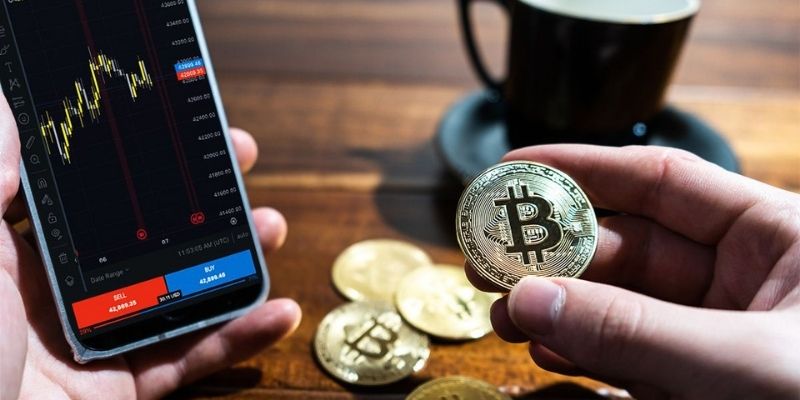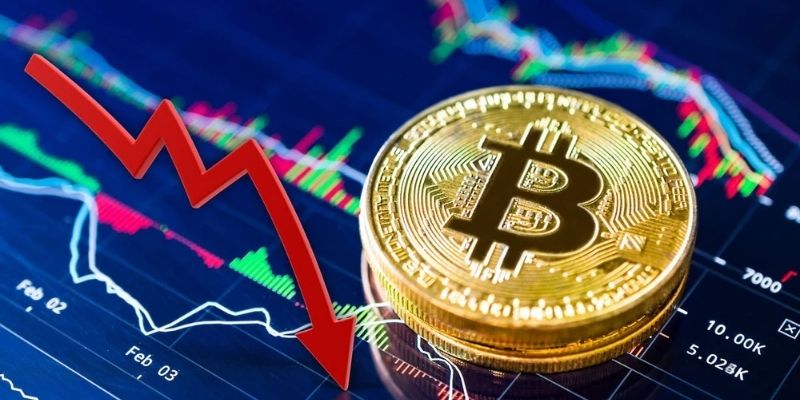On March 1, 2025, Prime Minister Phạm Minh Chính issued Directive 05, requiring a legal framework for digital currency to be completed by the end of March – a bold move in the global race for virtual assets. As Vietnam accelerates with immense potential, the question remains whether this directive will help the country secure a leading position or merely serve as a risky starting point.
The Virtual Asset Race – Global Context and Vietnam

Virtual assets, from Bitcoin and Ethereum to decentralized tokens, have transcended experimental concepts to become a global economic race, where nations compete for financial power. Billions of dollars flow through the digital currency market each year, making it a tool for capital mobilization, investment, and borderless transactions. The U.S. has legitimized digital currency within its banking system, with approved Bitcoin ETFs, while Singapore has established itself as a blockchain hub with flexible legal policies and tax incentives. Countries like Japan and South Korea are also not standing idly by, with strict legal frameworks aimed at both managing and exploiting potential. This is a silent but intense battle, where those who lag behind will be left behind.
In this global landscape, Vietnam is emerging as a surprising dark horse. With 21% of its population owning digital assets – ranking it among the top three countries globally, according to the Vietnam Blockchain Association – and a $120 billion influx into the market in 2023, as reported by Chainalysis, Vietnam possesses potential that many countries envy. From individual investors to tech startups, digital currency has permeated economic life, creating a vibrant wave in cities like Hanoi and Ho Chi Minh City. However, this potential is hindered by a concerning reality: Vietnam lacks a legal framework to manage virtual assets.
Current laws only recognize cryptocurrencies tied to fiat currency, such as e-wallets, completely overlooking virtual currencies and decentralized digital assets. Consequently, Vietnamese blockchain businesses must “go abroad” to Singapore or the U.S. to operate legally, resulting in the leakage of billions of dollars. Citizens, despite their enthusiastic participation, fall into a legal gray area, facing risks from scams to price volatility without any protection. As international competitors accelerate, Vietnam faces pressure to act quickly – not just to manage but also to secure a position in the increasingly heated virtual asset race.
The Prime Minister’s Directive – A Strategic Move

Recognizing the risk of falling behind, Prime Minister Phạm Minh Chính made a strategic move through Directive 05 on March 1, 2025. With clear instructions, the Ministry of Finance and the State Bank of Vietnam were tasked with completing the legal framework for digital currency by March 31, 2025 – an unprecedented “sprint” deadline. This is not just a legal task but a declaration of war against international competitors, affirming Vietnam’s readiness to enter the virtual asset race with full determination.
This directive is not vague but comes with specific guidance. The Prime Minister requires the establishment of a legal framework to identify digital currency, laying the groundwork for transaction management and economic potential exploitation. The highlight is the proposal for a sandbox mechanism – a “controlled experimentation playground” to develop digital asset exchanges under strict supervision – demonstrating a vision that is both cautious and bold. This move aims to transform digital currency from an “unknown” into a “weapon” in Vietnam’s hands, supporting the goal of achieving an 8% GDP growth in 2025 and beyond, competing with top financial centers.
The timing of March 2025 is not coincidental. As other countries have been ahead for years, Vietnam needs a strong push to catch up. The Prime Minister’s directive signals that the country not only wants to survive but also lead in the virtual asset race, turning potential into real strength on the international stage.
Legal Framework – A Tool in the Virtual Asset Race

The legal framework for digital currency, as directed by the Prime Minister, is expected to become a sharp tool for Vietnam to assert its position. First, it will identify virtual assets – from Bitcoin to tokens – as legitimate assets, paving the way for businesses and citizens to use them in transactions and investments. This not only brings transparency but also creates an opportunity to retain the $120 billion within the country, rather than letting it flow to Singapore or the U.S. as it does now.
Moreover, the legal framework will be an instrument for Vietnam to compete directly with major competitors. When digital currency is effectively managed, domestic businesses can build exchanges or financial products, competing with names like Binance or Coinbase. The sandbox mechanism is a special advantage, allowing the experimentation of digital asset exchanges in a controlled environment, reducing risk while fostering innovation. If successful, Vietnam can attract international blockchain investment funds, transforming itself into a new regional financial hub.
Economically, this “tool” will stimulate capital circulation. Businesses can use digital assets to raise capital from banks or investors, reducing pressure on traditional credit channels. Citizens, with legal protection, will be more confident in participating in digital currency, contributing to domestic consumption and investment stimulation. This is a strategic step for Vietnam not only to catch up but also to surpass others in the intense virtual asset race.
Vietnam in the Race – Opportunities and Challenges

In the virtual asset race, Vietnam has many opportunities to break through. With its existing position – ranking among the top three globally in digital asset ownership – the country has a young, dynamic, and tech-savvy population to build a strong digital financial ecosystem. The legal framework in March, if effectively implemented, will help Vietnam retain billions of dollars, turning it into a resource for large projects like 3,000 km of highways or Long Thanh Airport. Furthermore, this is an opportunity to surpass regional competitors like Thailand and Indonesia, competing on par with Singapore, attracting international investment, and asserting its position in the global digital economy.
However, the challenges are significant. The tight March deadline may result in an incomplete legal framework, leaving loopholes for speculation or financial crimes like money laundering – a problem even advanced countries struggle with. The inherent volatility of digital currency is another major risk; without strict control mechanisms, businesses and citizens could suffer substantial losses when the market reverses.
Additionally, Vietnam lags behind competitors in experience and infrastructure. As Singapore has a complete blockchain ecosystem, Vietnam is only at the starting point, lacking experts and technology to manage virtual assets comprehensively. If it does not invest timely, Vietnam risks being left behind, even with a legal framework in place. This race demands not only speed but also persistence and long-term strategy.
According Financialinsightdaily, The Prime Minister’s directive on the legal framework for digital currency is a strategic move for Vietnam to join the virtual asset race, turning potential into economic strength. While it offers significant opportunities for global competition, it also poses challenges in terms of time and management. With determination and the right vision, March 2025 could be the milestone that puts Vietnam on the world’s financial map.
